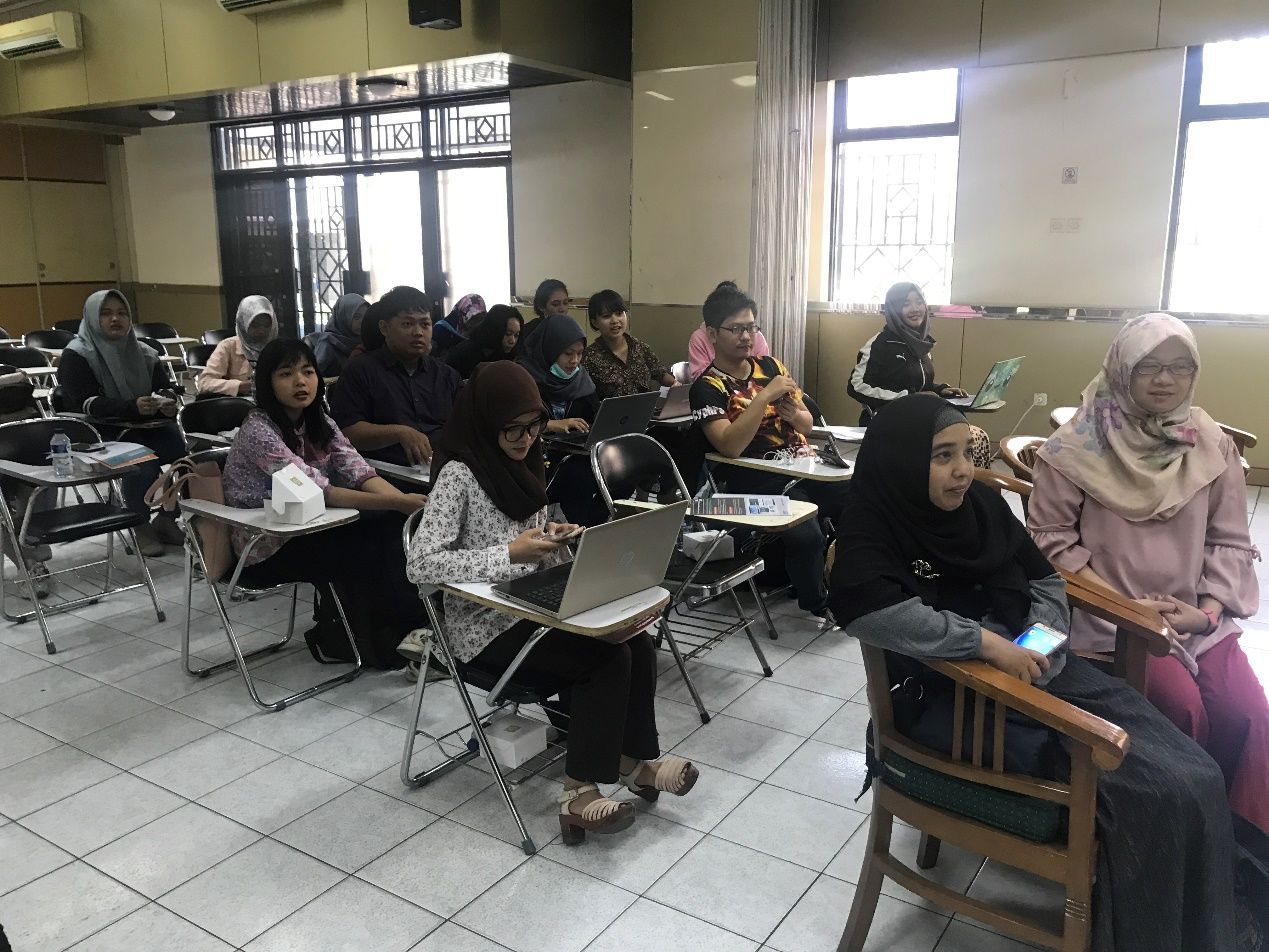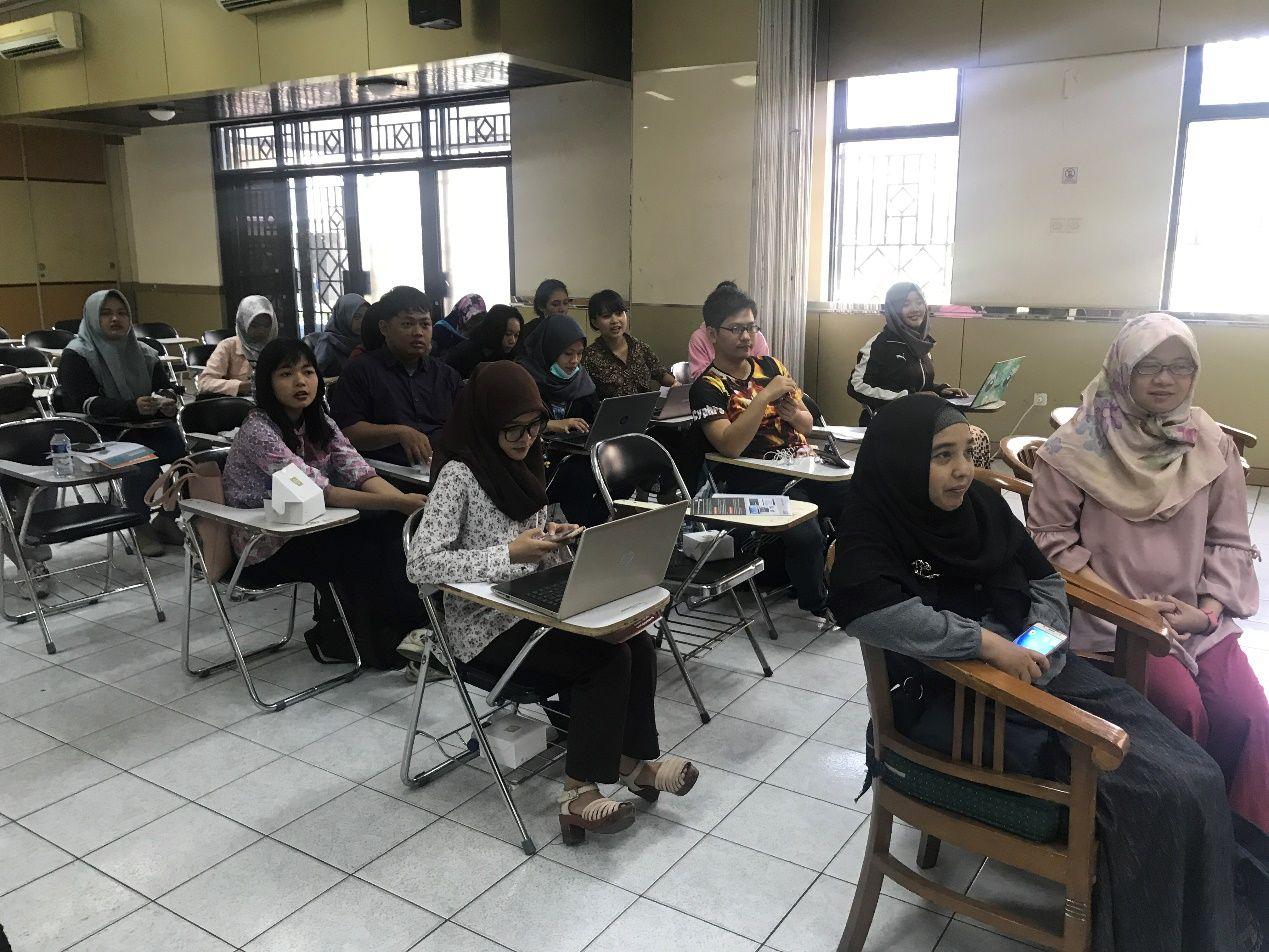
CNKI conducts a database training session at the State University of Jakarta in Indonesia, July 18, 2018. (CNKI)
BEIJING, April 24 (Xinhua) -- As the 21st century is progressing, traditional means for knowledge spreading are more and more incapable to keep pace with the times. The emergence of digitization has raised the possibility to reshape the landscape of civilization exchanges, as it gives rise to the integration of worldwide civilizations by disseminating culture at the speed of light. Currently, China National Knowledge Infrastructure (CNKI) and China's digital publisher Wisdom Palace among other enterprises are working to make worldwide cultural exchanges smoother by leveraging digital tools.
Saint Petersburg, Russia
Saint Petersburg State University (SPbU) is the first university in the Russian-speaking world. Founded in 1724 along with the Saint Petersburg Academy of Sciences (now the Russian Academy of Sciences) by an edict of Peter the Great, SPbU has been committed to fundamental research in science and technology, natural sciences and humanities from the very beginning, aiming at equipping its students with what it takes to contribute to Russia's growth and reform. So far, it has nurtured nine Nobel laureates, and it is also the alma mater of Russian President Vladimir Putin.
In 2016, thanks to the help of SPbU's Professor Aleksey, CNKI sent a delegation to visit SPbU and received a grand reception. During the visit, the delegation was told that 150 years has passed since SPbU set up sinology. Meanwhile, it also learned that SPbU hoped to introduce materials on Chinese economy and laws, and also planned to enroll Chinese students to major in geology (like water quality, mineralogy, mechanics, etc.). According to Aleksey, China and Russia had many common interests in geology, so enrolling Chinese students to major in this field would not only be conducive to deepening mutual academic cooperation, but also help continue SPbU's sinology tradition and develop new cooperation models. Afterwards, CNKI opened the database trial service for SPbU.
CNKI's trial service period coincided with Russia's economic downturn, due to which government grants to colleges and universities had plummeted, making nation-renowned SPbU hard pressed for money. Considering objective factors and practical difficulties, CNKI decided to extend its service period. In 2018, CNKI-SPbU all-round partnership officially began. Since then, this China's authoritative academic database managed to establish a presence in Russia's top seat of learning, providing Russian students with the ideological crystallization of Chinese civilization as well as experience and wisdom of contemporary China.
"CNKI database is of great help to my academic research, and many of my students have gained insights into the fast-growing Chinese economy through the database," said Ilya, a scholar of China studies at SPbU.
"As China has opened its doors and markets, we have found that there are an increasing number of scholars and students eager to know about China. We hope to use knowledge as the bridge of communications to let the world know more and more about China." said head of CNKI, "In the context of the Belt and Road Initiative, developing a diverse talent pool is of great importance, while the Chinese electronic library can help worldwide students advance their research to the next level and know more about each other through academic exchanges."
Ankara, Turkey
The straight-line distance between Beijing and Saint Petersburg is more than 6,000 kilometers, while the straight-line distance between Ankara and Beijing is more than 6,800 kilometers. The spatial distance is long, but judging from the perspective of knowledge, this can be easily solved by an electronic journal.
In 2018, CNKI saw an ever-increasing number of Turkish subscribers. Still, Turkey hoped to deepen cooperation with CNKI, for example, establishing some Turkish e-book platforms.
Students from the Confucius Institute at Ankara University said that CNKI had helped them a lot in their Chinese learning and studies, and also gotten them up to speed regarding China's latest academic developments.
According to head of CNKI, Chinese history and culture had been the most attractive content to foreign researchers years ago, and China's economic development experience in contemporary times, especially over the past four decades since its reform and opening-up, has also become a research focus of the international community in recent years.
Cairo, Egypt
At the 49th Cairo International Book Fair (CIBF) held in February 2018, the "China Book Pavilion" decorated with elegant and understated Chinese cultural elements attracted many visitors.
One visitor who had just bought the Demystifying the Economic Growth in Transition China said, "China has succeeded in gaining a foothold among world nations within such a short time, so it is very necessary to know about its economic, social and cultural development process and pattern."
Ines Abdel-Dayem, Egypt's Minister of Culture and Hisham Murad, Egypt's Deputy Minister of Culture, visited the "China Book Pavilion" created by the Chinese digital publisher Wisdom Palace for this CIBF.
Isla Ismail, who was in charge of the "China Book Pavilion", said to Minister Ines, "Most visitors to the 'China Book Pavilion' are Chinese learning Arabic or Arabians learning Chinese. In addition, there are also some visitors who have strong interest in Chinese culture, and they often stop to read books on Chinese history and culture."
According to Ines, both China and Egypt are among ancient civilizations, and the two peoples have a long history of exchanging friendly with each other. Over 2,000 years ago, the Ancient Silk Road had linked the two countries closely in economy, trade and culture. In 1956, the China-Egypt diplomatic relation was established. Over the past 60-odd years since then, the two nations have witnessed each other's development and the profound friendship between the two peoples; the China-proposed Belt and Road Initiative has demonstrated the "Chinese wisdom" in areas like common prosperity and mutual benefits for the international community, which is exactly the "Chinese experience" that Egypt and the international community need to learn from. Meanwhile, Ines extended his thanks to the Chinese-Arabic translators for helping spread the excellent Chinese culture to Egypt through books and make more readers know China.
Learning Chinese is not only fundamentally for equipping people in countries along the Belt and Road routes with language ability, but also for helping them know more about Chinese culture so as to advance cultural exchanges and learning. That's the original intention for the establishment of the "China Book Pavilion".
At present, Wisdom Palace is working on building a two-way interactive application platform based on mobile terminal plus PC terminal, with the application of the Chinese language and the communication in the Chinese language as the core and basic Arabic learning as the auxiliary. A major feature of the platform is that it can capture multilingual network words through the RPC (Remote Procedure Call) distributed system and then process them through analysis, filtering and other modules, thus making the data in the database more accurate.
On October 14, 2018, this platform was officially rolled out globally and is available in Chinese, English and Arabic. So far, the downloads have exceeded 100,000, and over 70 percent of the users are from Arab countries, covering nearly all colleges and universities offering Chinese majors in Arab countries.
Exchanges and mutual learning between civilizations with digitalization as a bridge are driving human progress as well as world peace and development. Civilizations have become richer and more colorful with exchanges and mutual learning. Now, China is working together with other countries to use digital technology for boosting integration of and harmony among different civilizations in an effort to build a better world. (Contributed by Li Haoran, edited by Hu Pingchao)




 A single purchase
A single purchase









